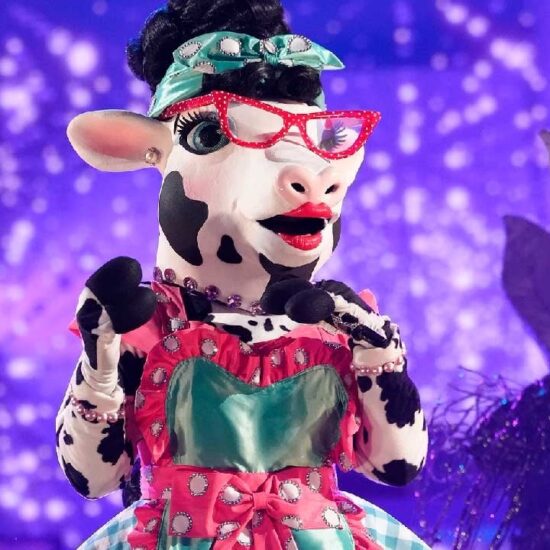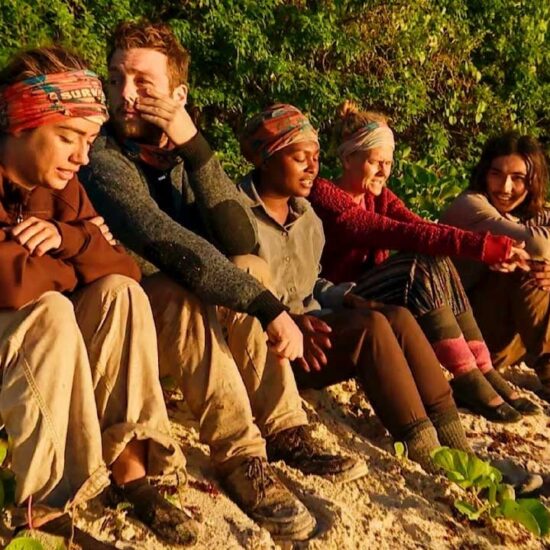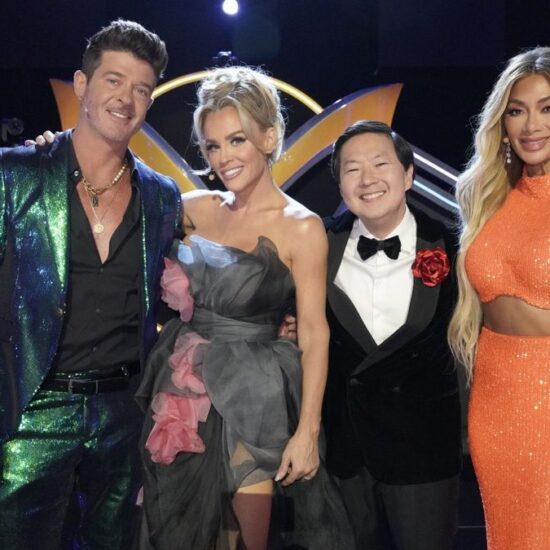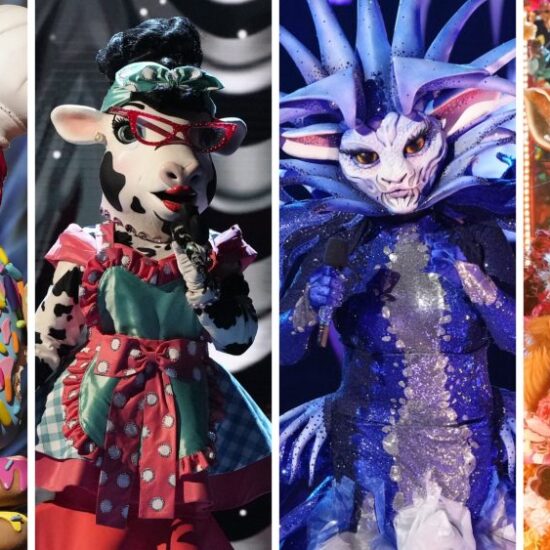

Over the course of its eight-season run, critics and fans alike dinged Game Of Thrones for its failures of representation. Characters of color were thin on the ground and often viewed through a regressive colonialist lens; violence and cruelty toward women was handled with graphic abandon; and the show’s few LGBTQ+ characters were treated with particular cruelty.
It’s the latter that once more rears its ugly head in “We Light The Way,” proving that House Of The Dragon has learned little from its predecessor’s mistakes. Early in this episode, we meet Ser Joffrey Lonmouth (Solly McLeod), the lover of Rhaenyra’s king consort–to-be, Laenor Valeryon (Theo Nate). Before the hour is out, we’ll witness his brutal murder. It’s an ignominious ending for a character we’ve only just met, and it’s part of a persistent problem on modern television.
But more on that later. First, we’ve got a marriage to broker. Rhaenyra and Viserys are on the way to Driftmark to parlay with Corlys Valeryon about a proposed union between their houses. After giving the pink slip to Otto Hightower last week, Viserys is in the company of his new Hand, Lyonel Strong. The king is also sick as a dog, though it’s not yet clear if it’s from his chilly sea voyage or something more serious.
The king meets with Corlys in the throne room of High Tide, the seat of House Valeryon, to talk marriage and politics—which, in this case, are one in the same. On the surface, the idea is a win-win-win: The king can win back House Valeryon as an ally; Rhaenyra can divert attention away from her sex scandal with Daemon; and the Sea Snake can secure his family a place in the royal dynasty.
After a brief negotiation, the wedding is officially on. But afterwards, alone with her husband, Princess Rhaenys (we missed you, girl! And we love your pants!) expresses her doubts: Making Laenor the future king consort to a controversial heiress will put him in the path of considerable danger. And then there’s the other issue: Even if Corlys refuses to acknowledge it, Rhaenys knows full well that her son is gay. Luckily, Rhaenyra knows too—and she’s got a proposition that will benefit them both. They’ll “do their duty” and pop out a few heirs, sure; but aside from that, they can bed whomever they want. And given the circumstances of their lives, this plan doesn’t sound half bad.
The groom-to-be tells Joffrey the plan, who isn’t too keen on it; but he relaxes a little when Laenor tells him that Rhaenyra has a secret lover of her own. The two flirt and share a sweet kiss, which made me, at least, hope that we’d get to see more of this relationship—a rare one for the world of Thrones—before things took an inevitably tragic turn. What a chump I was.
On the trip back to King’s Landing, Ser Criston comes to Rhaenyra looking like he’s just stepped off the cover of a romance novel. He asks the princess to forsake the machinations of the court and run away with him to Essos where they could be free to marry for love. But Rhaenyra is a Targaryen through and through; she would never forsake her claim to the throne—or her chance at power. She’s perfectly happy for the two of them to continue being secret sex buddies, but Criston isn’t. All he has is his place in the Kingsguard, and he’s already broken his oath of celibacy with her. He wants their relationship to be above board or nothing at all.
Back in the Red Keep, Alicent discovers that she’s been played for a patsy. As her ousted father Otto prepares to ride off, he gives his daughter a dire warning: After Viserys dies, he predicts that the only way Rhaenyra will be able to secure her spot on the throne will be to kill Alicent’s children, starting with Aegon. If she continues to back Rhaenyra’s claim, her best hope is to pray for mercy. (Maybe, just maybe, absolute monarchy is a bad system!)
While mulling things over in the Godswood, Alicent encounters Lyonel’s son Larys Strong (Matthew Needham). This episode runs on gossip, and here’s what sets the engine in motion: Under the pretense of asking if Rhaenyra is still “unwell,” Larys drops the bomb that the Grand Maester brought the princess some Plan B tea after her night on the town.

As soon as the royal party returns from the Stepstones, Alicent is all over Criston like white on rice; if anyone has the dish on whether Rhaenyra and Daemon did the dirty together, it’s him. But she unwittingly gets him to reveal his own shenanigans with the princess instead, and the truth burns away the last of Alicent’s naivete. Criston, in love with his own image of a disgraced white knight, asks her for the mercy of a swift death rather than the usual torture and castration (classic Westeros). But Alicent knows the usefulness of keeping him around instead.
Meanwhile, it’s clear that Viserys’ illness is more than a bad cold. He’s sweaty and feverish, and his entire forearm has gone necrotic from his Iron Throne-inflicted wounds. Alone in his chambers, he has a heart-to-heart with Lyonel that gets to the core of his conflict as a sovereign. (This scene is beautifully acted by Paddy Considine.) Will he go down in legend, even though his reign has been one of relative peace, and he’s never conquered anything like his ancestors did? “Some might call that good fortune,” Lyonel counsels. “But it hardly makes a good song, does it?” Viserys replies. It’s the crux of the problem with House Of The Dragon, but also what sets it apart from Game Of Thrones: Watching an essentially decent man navigate a position of power makes for a dull story.
Then it’s time for a royal wedding! These always go great in Westeros, if memory serves. Everyone who’s anyone is at a grand feast in the throne room, where the bride-to-be sits in the middle of a long table. As each Targaryen and Velaryon takes a seat, the “Last Supper” imagery is palpable.
Not to be denied the chance to stir up trouble, an uninvited Daemon makes a fashionably late entrance. Did I mention that he murdered his wife at the beginning of the episode, then passed it off as a hunting accident? (R.I.P., Rhae Royce. We knew ye for all of two minutes.) But even he’s out-drama-queened by the queen herself, who appears in the middle of the king’s big speech wearing an emerald gown. It’s not an idle fashion choice: According to Larys, green is the color of the flag House Hightower flies when it’s preparing to go to war.
What follows is an evening of drinking, dancing, and the tastiest gossip this side of Bridgerton. This pre-wedding feast has everything: Rhaenyra and Laenor looking fabulous; Jason Lannister being an ass; Rhae Royce’s cousin (correctly) accusing Daemon of murder; Daemon ditching him to go flirt with the now-adult Laena Valeryon, who flirts right back; and finally, Daemon brazenly sharing a dance with Rhaenyra, during which she calls his bluff and says if he wants her so much, he should kidnap her and take her to Dragonstone. The tension is this episode unspools at just the right pace, and it’s a thrill after the way early episodes dragged.
Then there’s the main event: the Rhaenyra-Laenor-Criston-Joffrey love triangle, which has been simmering all night. It reaches a boiling point when Joffrey, who easily identifies Criston as the princess’ fuck buddy, approaches him for a chat, paramour to paramour. He suggests that since they’re both “deeply invested in this union,” they should make a pact to guard their lovers’ secrets as well as their own.
And for Criston, that’s the straw that breaks the dragon’s back. Amid the swirl of dancers, he tackles Joffrey to the floor and punches him with his gauntleted fist over and over, blood spraying everywhere, until he’s bashed his face into raw meat. The camera lingers on Joffrey’s ruined head, and it’s gratuitous and horrific.

The guests melt away, leaving Laenor weeping over his dead lover’s body. Meanwhile, Criston goes out to the Godswood to kill himself at the tip of his own dagger—but Alicent stops him. We really wish she hadn’t.
Any idea of a weeklong celebration forfeit at this point, a priest marries the princess and her consort right there in the ruined hall, between the mangled remains of the feast and a puddle of Joffrey’s blood. Both of them cry as they say their vows. And as if things weren’t bad enough, the ceremony ends with an ailing Viserys collapsing to the flagstones. It’s a union forged in horror, which is par for the course for a Thrones nuptial. But even by Red Wedding standards, this is a lot.
And I know, I know: Westeros is a brutal place; senseless murder is as common as boiled leather. But in a show where all but two characters are straight, immediately killing one of them sends a very different message—especially when that death is in the service of a heterosexual character’s plotline.
It’s the continuation of a pattern from Game Of Thrones, which took a ghoulish glee in punishing its handful of queer characters, from Renly Baratheon to Loras Tyrell to Ellaria Sand. (Only Yara Greyjoy made it out alive.) The most obvious comparison, of course, is bisexual icon Oberyn Martell’s death at the hands of the Mountain, which also ended in full-face mutilation.
It’s an example of a storytelling trope that media fans and critics have dubbed “Bury Your Gays.” The trend is as old as the Hays Code, but it’s persisted well into the 21st century. In 2016, for example, TV writers offed 27 LGBTQ+ characters—a very high number, considering they comprised only 4.8-percent of series regulars.
It’s not that LGBTQ+ characters should never die in popular media, and it’s not that Criston’s murder of Joffrey didn’t make sense from a plot perspective. It’s that, given how few and far between these characters are on mainstream television, a plot twist like this normalizes a culture in which queer people’s stories must always and inevitably end in tragedy—and in the service of others’ stories.
Stray observations
- There is, of course, a popular backlash against criticism about representation in the Thrones-verse, which tends to go something like this: The world George R.R. Martin created is based on medieval Britain, where the cruelest of cruelties were reserved for the marginalized, violence against women was commonplace, and the population was primarily white. It’s pretty rich to insist on historical verisimilitude when it comes to diversity and women’s subjugation, but not when it comes to dragons, ice zombies, resurrection magic, warging, or shapeshifting assassins. (And if you do want to get pedantic about it, history shows that the population of medieval Europe was much more diverse than media representation suggests.)
- Viserys’ pick of Lyonel as his new Hand is a good one. The former Master of Laws has consistently been the king’s most reasonable and impartial advisor. But given how these things tend to go, who knows how long that will last?
- When Viserys and Corlys are negotiating the terms of their children’s marriage, the king makes it clear that he intends the tradition of gender-neutral heirhood to continue after his death: Rhaenyra’s first child will inherit the throne no matter their gender.
- Rhaenyra and Laenor’s coded conversation about their sexual preferences (“roast duck” versus “roast goose”) feels like a Westerosi homage to the Schitt’s Creek scene in which David Rose uses wine varietals as a metaphor for pansexuality. (“I like the wine and not the label. Does that make sense?”)
- Director Clare Kilner makes beautiful use of atmospherics in this episode: The Vale filled with peaceful birdsong immediately before Daemon kills his wife, rain falling on the parapets of High Tide as the Targaryens approach. It’s a potent contrast to the bursts of violence that follow.














